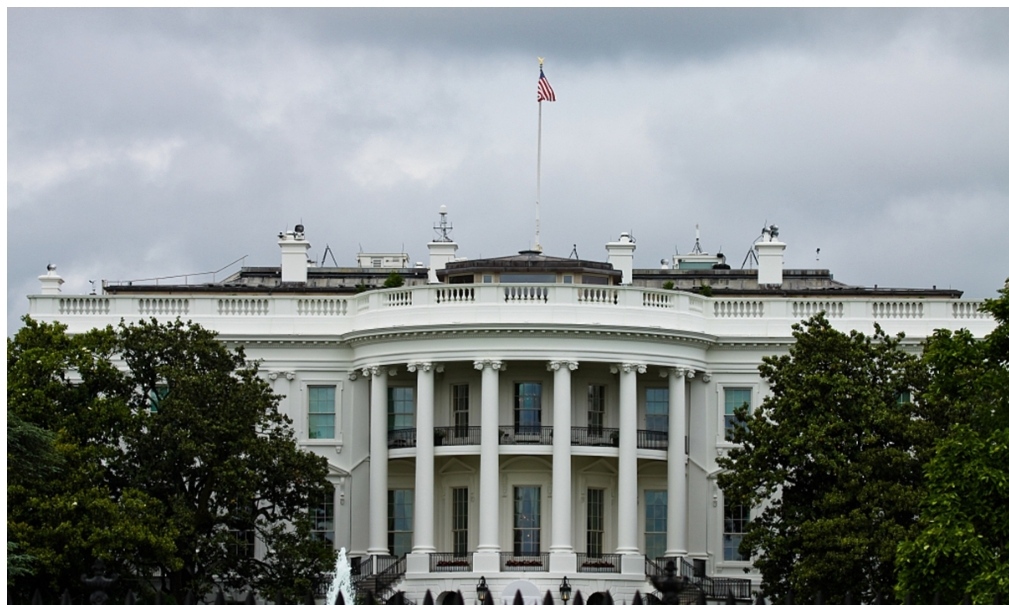Economic bullying benefits no one – a historical conclusion

White House
On April 2, the US announced its long-anticipated global reciprocal tariff plan. The US stated that the reciprocal tariffs would be implemented in two phases: a “baseline” tariff of 10 percent on all imports, and much higher rates ranging from 10 percent to 50 percent on most countries.
China will face a 34 percent tariff, while European Union will face a 20 percent tariff. Japan will be subject to a 24 percent tariff, and India will face a 26 percent tariff.
Following the announcement of the tariff plan, the stock market plummeted, and global pessimism persisted. A chief economist at Japan’s Nomura Research Institute stated that the tariffs “carry the risk of destroying the global free trade order the US itself has spear-headed since the Second World War.”
The US “reciprocal tariffs” directly violate the WTO’s most-favoured nation principle, which states that countries cannot discriminate between their trading partners.
This action breaches the spirit of contracts and undermines the fair competitive environment established under the WTO framework.
From the initial announcement of the concept of “reciprocal tariff” to the release of corresponding tax rates for various countries on April 2, it took less than two months, raising concerns about the quality of the so-called data used for the tariff review.
Some have claimed that the final data resembles calculations based on trade deficits rather than real tariff structures. In other words, under the guise of so-called fairness and reciprocity, it is merely another form of “America First” economic bullying.
In response, the international community has reacted strongly, with many trade partners expressing significant dissatisfaction and clear opposition.
Consequently, the chain effects of supply chain disruptions, shrinking trade, and rising production costs will further impact businesses and people in various countries.
The tax rates and scope have exceeded expectations, citing expert analysis that if a global trade war erupts, the consequences could be more severe than those of the Great Depression of the 1930s.
Statistics from Bloomberg Economics indicate that emerging markets would be hardest hit, Argentina, much of Africa and Southeast Asia. India to will not go unscathed.
In light of US trade policy, JP Morgan Research has raised the probability of a global recession taking hold in 2025 to 40 percent — up from 30 percent.
Various sectors hold a pessimistic view of the US tariff plan, believing that it will cause the already inflation-stricken global economy to lose its recovery momentum, with many countries facing the risk of economic recession, while geopolitical tensions are also expected to escalate.
Economic bullying benefits no one; this is a historical conclusion. Even if we only look back at the history of tariffs in the US, it is not difficult to see that the current reciprocal tariff approach by the US government is akin to stepping on its own toes with the stones of history.
The chaos of high tariffs following the Smoot-Hawley Tariff Act of 1930 is not too far in the past, and the tariff war initiated unilaterally by the US government against China in 2018 has not brought the one-sided victory that Washington hoped for.
According to data from the US Department of Commerce, US exports to China fell by 11 percent in 2019, while imports decreased by 16 percent, directly impacting American agriculture, manufacturing, and technology sectors.
The Peterson Institute for International Economics estimates that American consumers pay about $57 billion more each year due to tariffs, significantly raising the cost of living.
The past unilateral tariff policies of the US did not crush China or India. Even the illegal unilateral sanction on India in 1998 after India just walked into the NUCLEAR CLUB had hardly any effect.
Same is the case with unilateral illegal American and others of G7’s sanction on Russia. Today, in the face of renewed tariff pressures from the US, India and China seems to be even more confident, both in terms of its economic structure and its international positioning.
In fact, American consumers have begun to recognize the situation they will face. The latest predictions from Yale University’s Budget Lab indicate that a broad 20 percent tariff in the US could cost the average American household up to $4,200 per year, raising consumer prices by between 2.1 and 2.6 percent.
Another study shows that in the case of retaliatory tariffs, the decline in USGDP is greater than the corresponding decline in any other country.
Recent polls indicate that American consumers are concerned about the impact of tariffs and believe that the US government emphasizes tariffs too much while downplaying rising prices.
A survey by The Economist/YouGov found that only 24 percent think that foreign countries and companies bear the cost of tariffs, while 54 percent think that it’s mostly American companies and consumers.
History will once again prove that economic bullying, which seeks to shift burdens onto neighbours, will ultimately backfire and undermine the US-led free trade order.
Only by upholding multilateral rules can we achieve win-win outcomes. The idea that “you are in me, and I am in you” is a significant hallmark of the globalization process, and the US high dependence on global supply chains is evidence of this.
By wielding tariffs like a sword against itself, American companies will bear the brunt of supply chain disruptions.
Economic bullying and coercion will not solve America’s problems; instead, they will elevate global risks. There will be no winners in a trade war or tariff war, and protectionism will lead nowhere.
If the US government recklessly employs economic bullying tactics that harm the legitimate interests of other countries, it will ultimately find itself increasingly distanced from the global mainstream.
Source : Global Times




